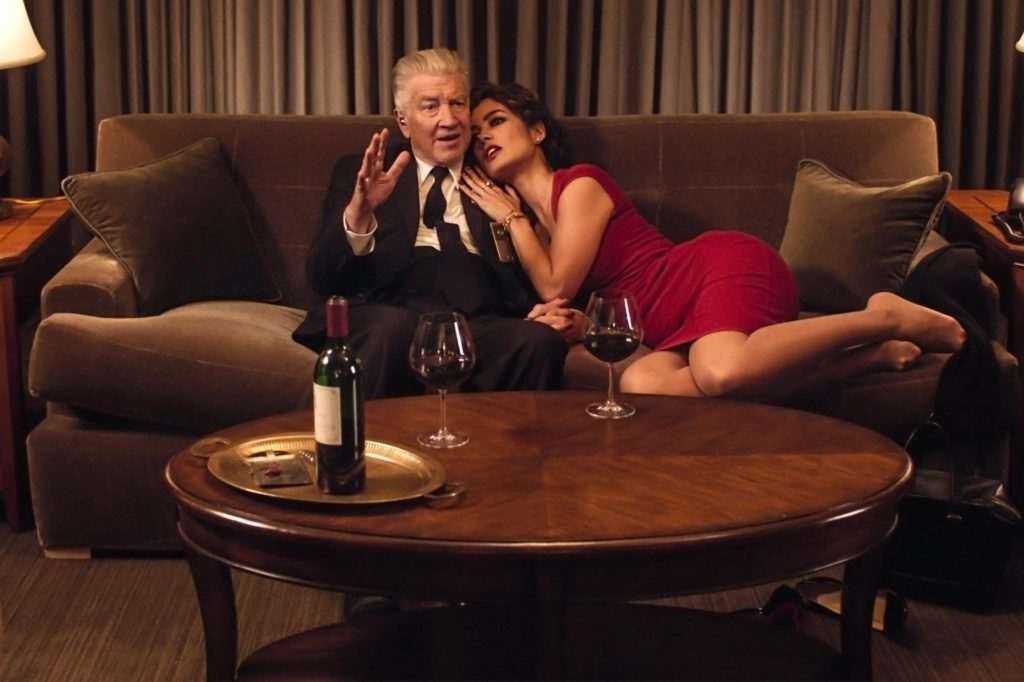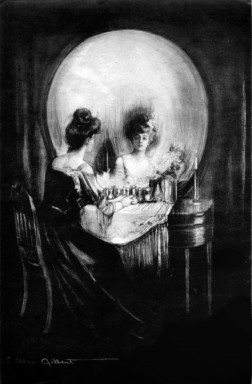
Let’s start off with a bit of heresy, so there’s no confusion: Twin Peaks: The Return, David Lynch’s revival of the ’90s surrealist soap opera by which the weirdo director insinuated himself into the living rooms of the average, non-weird U.S. TV-consuming population, is not at all, in any way, worth your time, or mine. It is something like mandatory that, before I tell you about the various reasons why it may be flawed from a feminist perspective, I fawn over the show and its creator, everyone’s darling transcendental pervert-boy-scout, as if some degree of appreciation is a prerequisite to criticism. I’m supposed to begin by telling you that Twin Peaks: The Return, which premiered in May on the Showtime network and has basked in a predictably benefic sea of acclaim since then, is brilliant, formally; it’s pushing the boundaries of what TV can be, it’s audaciously experimental, it’s visually stunning, and, like, weird as hell, man, totally blowing my mind. Attaboy, David Lynch! I’m supposed to say this sort of thing before I proceed with “and yet…” then outline my timid tiptoeing case against Lynch’s new project, but I think I’ll pass because I don’t count “pushing the boundaries of what TV can be” as an innately intriguing endeavor — I’m in no rush to celebrate a more inventive re-imagining of the passivity-preserving, life-sucking narcotic spectacle that is Must-See Television — and also, The Return is stupid, I’ll even submit: without redeeming value. It is not good. I wish I hadn’t watched as much of it as I have. Having watched it, I feel I have lost something, some small but not negligible chunk of my life I cannot get back. I did not want to watch The Return. My plan was to be a conscientious objector. I read a piece I am reluctant to call a “review” of the first episode on the Artforum site and my curiosity wheezed once, spat up something bilious, a twitch shuddered through its shriveled carcass, and it died. I was satisfied that there was nothing to be gained from tuning in, that I could carry on unmolested by any sense of obligation to participate in this particular pop culture phenomenon.
Yet, being weak-willed or perhaps slightly depressed this summer and by constitution more than slightly drawn by the morbid lure of that which I fully expect to loathe, I toppled from my desert plateau of non-participation and in July, with resignation, I joined the herd. My friend had been watching the show in secret, keeping his viewership from me, and to abate my own sense of exclusion from everything due to being a chronic killjoy to the point that my friends are unwilling to share with me what they’re doing out of nervousness that I’ll object to it, in order to try to seem game and up-for-it, I sat down with him to take in an episode: Part 9 of Twin Peaks: The Return. What I saw was a small herd of buffoonish men in beige suits chasing a Bruce-Willis-in-Diehard mini-me assassin through the hallways of a budget hotel. I was not interested. I have an extreme lack of interest in midget assassins, in the use of physical difference as chuckle fodder. It’s boring, it’s easy. It is lame. My snap judgment of the new Twin Peaks emerged as a moan of exhaustion: “Men really can do whatever the hell they want.” Lynch gave us a midget assassin because he could and we the loyal viewers are expected to be happy about it. Because he’s David Lynch, it’s David Lynch’s midget assassin. A ponderous, far-out, surrealist midget assassin. He gave us this lame, boring, entry-level gag because he is David Lynch and no longer has to try to make what he does interesting; if he makes it, it will be declared interesting, because he is David Lynch—he is an interesting man. The more brazen that which he chooses to do is in its awfulness, the more suggestive of a lack of self-critical second thoughts, the more whatever it is he does testifies to his genius. This is the first lesson of Twin Peaks: The Return. If this had been the only lesson, I would not have continued watching.
But then there’s the second lesson, being: women are garbage people who scarcely deserve to breathe air. And it was this woman-hating subtext of The Return that hooked me, not its formal unconventionality, or its visual appeal, or its uncompromising “weirdness.” The show is, foremost, a hot mess of self-consciously vacuous, self-indulgent meandering; it’s the David-Lynch-is-a-Living-Legend show and I don’t care. It is also a sexist nightmare. And I care about that, I do care. Helplessly, I do. I have now watched 13 episodes, wasted 13 hours of my life, transfixed by the spectacle of Lynch’s newfound commitment to gross misogyny. I have nothing good to say. Continue reading “I Can’t Watch: The Kitsch Sexism of ‘Twin Peaks: The Return’”
